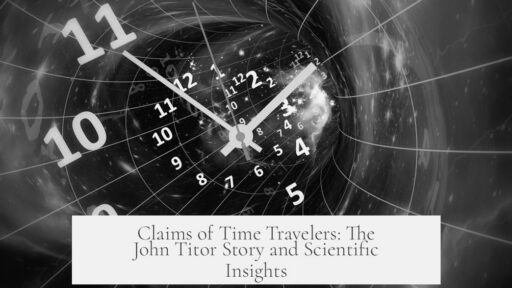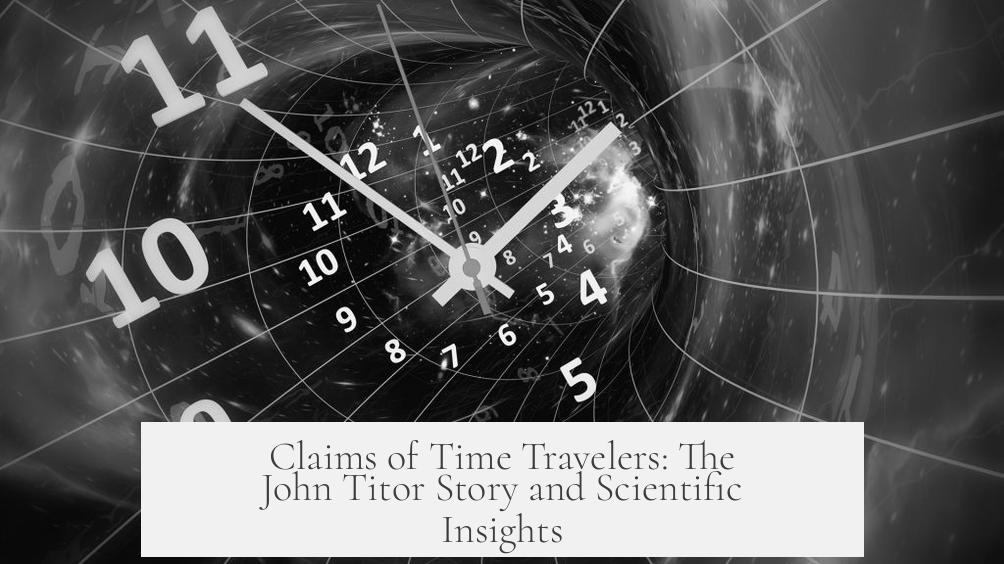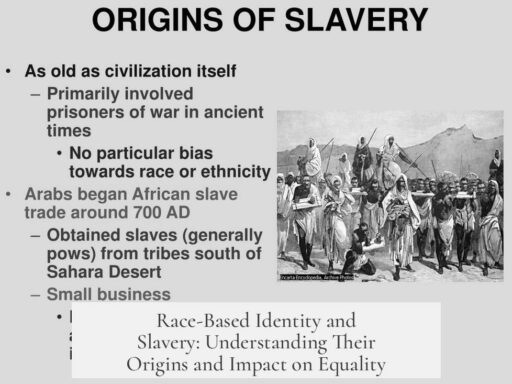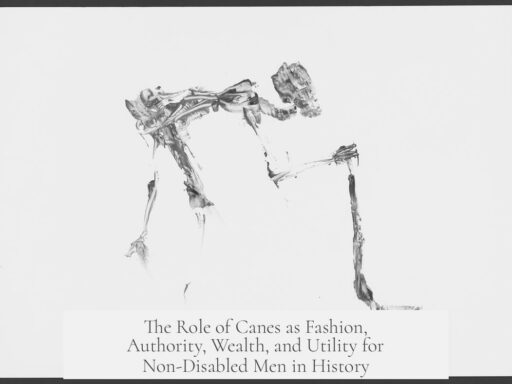Yes, one of the most well-known individuals who claimed to be a time traveler from the future was John Titor. He garnered attention in the early 2000s by posting on internet forums that he came from the year 2036.

John Titor’s narrative includes detailed backstory and forecasts. He claimed his mission was to retrieve an IBM 5100 computer from 1975. According to him, this computer was essential to fix legacy computing systems in his future timeline. During his journey, he reportedly spent time in the year 2000 for personal reasons, such as visiting family and collecting lost heirlooms.
Titor actively engaged in message boards focused on time travel topics. He shared specific warnings and predictions. One was an outbreak of Creutzfeldt–Jakob disease connected to beef consumption, which echoes concerns about mad cow disease. More dramatically, he predicted a five-way civil war starting around 2005. He linked this conflict to anomalies in the 2004 U.S. elections, which he claimed would lead to monthly violent incidents reminiscent of the Waco siege. This scenario was to culminate in 2015 with a major World War III, resulting in the destruction of Washington D.C. and Jacksonville, Florida. According to Titor, the U.S. capital would then move to Omaha, Nebraska.

Interestingly, Titor noted he “missed” major events, including the September 11 attacks and the Global War on Terror. He explained this based on his role as a “militia child soldier” and time spent outside certain conflicts.
However, his predictions did not occur as described. To address this, Titor invoked the “many worlds hypothesis,” a theoretical model suggesting multiple coexisting timelines. He argued his time travel changed the course of events, creating a new timeline where his predictions did not manifest. This explanation allowed for his claims to persist despite failed forecasts.

John Titor’s posts have been archived at johntitor.com. Investigations hinted at possible real-world individuals behind the persona. Some pointed to Larry Haber, a Florida entertainment lawyer, and Richard Haber, a computer scientist, as potentially linked to creating the story. Author Joseph Matheny also claimed involvement in 2018. The New Republic has published detailed analysis exploring the phenomenon and its impact on internet culture.
Besides Titor, there are no well-documented claims matching his notoriety. Scientific and popular efforts to locate time travelers have largely been unsuccessful. For example, Stephen Hawking conducted a “time traveler’s party” experiment by sending out invitations to a past date, expecting attendees from the future. No one came, a result used humorously as a lack of evidence for time travelers visiting our present.

Researchers have also scanned timelines for unpredicted unique events, such as the ascension of Pope Francis or the trajectory of Comet ISON, hoping such rare occurrences might help identify future visitors. These attempts have also come up empty.
Theoretical frameworks offer reasons why time travelers might not appear openly. The many worlds hypothesis, or multiverse theory, suggests any act of time travel creates a branched timeline. This means a time traveler’s arrival would spawn an alternate reality where their presence exists, rather than altering the original single timeline. Consequently, we would not witness time travelers in our own singular history.

This theory also explains classic paradoxes like “Why haven’t time travelers killed Hitler?” Each attempt to change history creates a new branch, leaving the original timeline intact. Hence, the timeline we inhabit remains unaffected by such interventions.
In a lighter vein, the absence of time travelers preventing questionable present-day actions (like posting a silly message) could be because any interference spawns new timelines, not altering ours.

| Key Points |
|---|
|
In conclusion, while John Titor stands out as the primary known figure claiming to be a traveler from the future, no verified evidence supports actual time travel. Both cultural stories and scientific investigations lean on complex theoretical physics to rationalize the lack of observed time travelers.
That We Know Of, Did Anyone in the Past Ever Claim to Be a Time Traveller from the Future?
Yes, indeed! The most famous case is John Titor, an alleged American military time traveler from the year 2036, who posted online around 2000-2001 claiming to have traveled back in time for a mission. But let’s not stop there—this fascinating claim opens a whole world of questions, predictions, theories, and hilarious “what-ifs.”
John Titor’s story is the headline act in the curious world of self-declared time travelers. According to Titor, he was sent back to 1975 to collect an IBM 5100 computer—a piece of tech no one thought much about but deemed crucial in his future for maintaining archaic computer systems. He then made a “pit stop” around the year 2000, citing personal reasons like visiting family and collecting heirlooms. Sounds like a serious multitasker, doesn’t he?
The John Titor Chronicles: Predictions and the Reality Check
Titor didn’t just share mundane details; he offered some serious warnings and predictions. One such claim was a mad cow disease warning involving Creutzfeldt–Jakob disease spreading through beef. Interestingly, mad cow disease did cause real-world scares! He also predicted a five-way civil war starting in 2005, triggered by the now-infamous 2004 US elections. The saga allegedly culminated in a World War III in 2015, destruction of Washington D.C. and Jacksonville, Florida, and Omaha becoming the new US capital.
News flash: none of these catastrophic events happened. So, is Titor an internet troll with an overactive imagination? His defense? The many worlds hypothesis—a theory that every action creates a branching timeline. If his first timeline was altered by his time travel, the absent disasters might be explained by the timeline shifting, not by simple falsehood. A clever dodge or intriguing possibility? You decide.
Where Did John Titor Come From? And Could He Really Exist?
There’s even some detective work around this mystery. John Hughston, a hoax investigator, linked Titor’s persona to Florida-based brothers Larry and Richard Haber. Larry is an entertainment lawyer, and Richard a computer scientist. Joseph Matheny, a storyteller, also claimed involvement in the saga, adding layers of complexity.
If you want to dig into Titor’s posts yourself, the archive at johntitor.com will give you direct insight into the saga that sparked endless forums and debates.
Scientific Efforts to Spot Time Travelers: Spoiler Alert, No Success Yet
With a tantalizing claim like time travel, the scientific community hasn’t just sat back and sipped tea. They have launched practical and theoretical searches for actual time travelers.
Take the example of famed physicist Stephen Hawking’s time traveler party. In a stroke of brilliant humor and scientific inquiry, Hawking sent invitations to a party held in the past. The catch? Nobody showed up. The absence of attendees became cheeky evidence against time travelers (or perhaps a sign they all had terrible social skills).
Scientists also searched the internet for records predicting wildly unexpected future events—like the sudden ascension of Pope Francis or the appearance of Comet ISON—events impossible for someone without future knowledge to guess correctly. Yet, no confirmed time travelers appeared on any forums or broadcasts.
Theoretical Explanations: The Many Worlds Hypothesis and Our Time Paradoxes
The many worlds hypothesis provides an elegant (and admittedly complicated) explanation for the non-appearance of time travelers in our timeline. This idea states that if a time traveler intervened or showed themselves, a new timeline would, in essence, “branch off,” leaving our own reality without obvious disruption.
Have you ever wondered why “no time traveler has come back to kill Hitler,” considering that would be a classic mission? Here’s the theory: they may actually have done it, but in an alternate timeline, not ours. Therefore, no paradox ruins history in our recognizable timeline. It’s the cosmic equivalent of parallel parking on a crowded street—there’s always an extra space out there somewhere.
And if you’re wondering why no future version of you has popped back to stop this post (or to prevent you from wasting precious time reading it), perhaps they did. That act simply spawned an alternate timeline where you’re reading it right now. Or maybe future you just doesn’t like you much!
What Does All This Mean for Us?
Claims of time travelers like John Titor offer a captivating glimpse into human imagination, fear, and hope. Whether he was a prankster, a hoax, or a breakthrough from the future, the story forces us to ask: If time travel is possible, why don’t we see more obvious evidence? The potential explanations are fascinating, from multi-dimensional branching timelines to constraints in causality and paradoxes.
For those intrigued by the possibility of contacting or discovering time travelers, the search is ongoing, but to date, no verified evidence has emerged. Scientific attempts show we are cautious about claiming proof without airtight validation. Theoretical frameworks provide plausible reasons why time travelers may remain unseen in our timeline. Meanwhile, internet forums continue to buzz with enthusiasts debating the reality or fiction of these tales.
Takeaway Tips for the Time Travel Curious
- If you encounter a self-declared time traveler, keep your skepticism handy—verify their claims carefully.
- Explore reputable archives like johntitor.com to read original posts and form your own opinion.
- Understand that many-worlds theory complicates the notion of a single timeline, making proof elusive.
- Remember the humorous but important lesson: If you’re waiting for future you to save you from a bad decision, don’t hold your breath.
Whether John Titor was a brilliant practical joker, a hoaxer, or perhaps a true traveler whose timeline shifted—his legacy in the time travel folklore cages the imagination. While physics and philosophy debate the possibilities, the question remains: If we can time travel, why haven’t we met anyone yet? For now, we wait, read, discuss, and dream.




